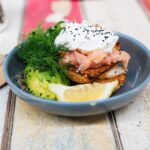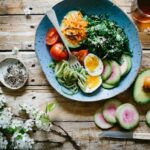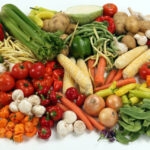Busting Food Myths with Nicole Senior
Myth: Taking vitamin supplements make you healthier
Fact: Supplements are only helpful to cover deficiencies and only paper over the cracks of a poor diet. There are some health risks attached to popping nutrient pills.
This month’s topic came about after a study was published in the well-respected journal Archives of Internal Medicine that found women who took multivitamins were actually at increased risk of dying compared to those who didn’t. The researchers followed 39,000 older American women participating in the US Women’s Health Study between 1986 and 2008, and arrived at this startling conclusion after accounting for the usual lifestyle factors such as body weight, smoking, alcohol and exercise levels. They also found taking some individual nutrient supplements was risky, namely vitamin B6, folic acid, iron, magnesium, zinc and copper. On the plus side, they found taking calcium reduced risk. This is not the first study to find that taking vitamins and minerals in supplement form is not as healthy as it seems: a meta-analysis and systematic review of 68 randomised trials in JAMA found increased risk of dying from supplemental beta-carotene, vitamin A, and vitamin E.

Vitamins and mineral supplements are a massive global business and have a done a great job in convincing those of us concerned about our health that popping vitamins daily is a good idea, just in case. However research has demonstrated that people who regularly take nutrient supplements are least likely to need them. It’s the ‘worried well’ who are filling the coffers of supplement marketers. As many vitamins are water-soluble and excess is excreted: they are simply creating brightly coloured, nutrient-charged urine. Fat-soluble nutrients (e.g. vitamins A, D, E) can actually build up in the body to toxic levels.
But supplements are not all bad. Sometimes they are a good idea: for example taking folate if planning a pregnancy, calcium if don’t eat dairy, iron if you are female and vegetarian, vitamin D if you’re deficient, or fish oil if you don’t eat seafood. Supplements can be very beneficial for vulnerable groups such as the frail elderly and others who for medical reasons struggle to eat a nutritious diet. But as a general health tonic, forget it: you’re better off spending money on eating better.
Food is complex: there are thousands of phytochemicals in plant foods we haven’t even named yet, and more bio-active substances in animal foods being discovered all the time. No doubt there are synergies between nutrients and other substances in food we can only speculate about at this point in time. It really is rather arrogant of us to expect we can replicate the goodness in food and sell it in a bottle. So if you’re keen to boost your health and wellbeing, skip the vitamin store and head straight to the food market. You can get all you need and more from two fruit, five veggies, legumes, wholegrain and low GI grain foods, lean meat, eggs, poultry and seafood, reduced fat dairy, oils, spreads, nuts and seeds. If you feel you’re diet is inadequate see a dietitian (APD/RD) to find out if you need to take supplements, which ones, and how much to reduce the risk of harm and wasted money.
Nicole Senior is an Accredited Practising Dietitian and Nutritionist and author of Eat to Beat Cholesterol, Heart Food and Belly Busting for Blokes.



![[NICOLE]](https://glycemicindex.com/blog/2007/dec2007/nicole125.jpg)




